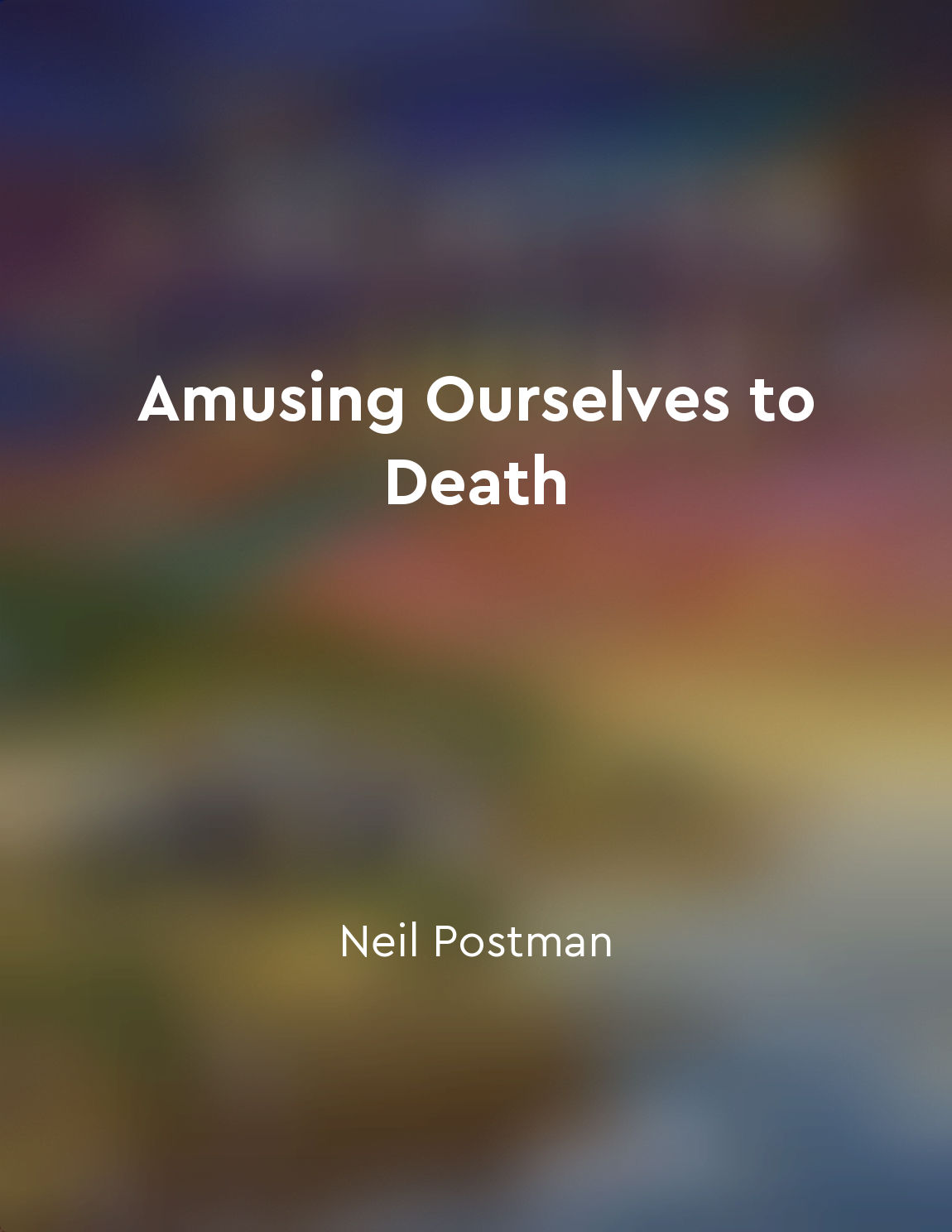Television stunts our ability to engage in critical thinking from "summary" of Amusing Ourselves to Death by Neil Postman
In his examination of the impact of television on society, Postman argues that the medium of television has the inherent ability to hinder our capacity for critical thinking. He posits that the nature of television as a visual medium prioritizes entertainment and spectacle over thoughtful analysis and contemplation. The fast-paced, image-driven nature of television programming encourages passive consumption rather than active engagement with complex ideas. Postman asserts that the constant barrage of sound bites and short attention spans fostered by television programming erodes our ability to engage in sustained, deep thought. The fragmented nature of information presented on television does not allow for the development of coherent arguments or the exploration of nuanced perspectives. Instead, viewers are bombarded with disjointed snippets of information that lack context and depth. Furthermore, Postman argues that the reliance on visual images over written text on television diminishes our capacity for critical analysis. He suggests that the medium of television privileges style over substance, leading to a superficial understanding of complex issues. By prioritizing entertainment value and sensationalism, television discourages viewers from questioning, challenging, and critically evaluating the information presented to them.- Postman contends that television stunts our ability to engage in critical thinking by promoting passive consumption, superficial understanding, and fragmented information. The medium's focus on entertainment and spectacle hinders our capacity for sustained, deep thought and critical analysis. Ultimately, Postman's critique of television underscores the importance of actively challenging and questioning the information we encounter in order to cultivate a more thoughtful and critical society.
Similar Posts
The significance of celebrity in modern culture
Celebrity is a lot like alcohol. Everything about it is addictive, and it all leads to the same inevitable conclusion. We watch...
Artistic practices can spark social change
Artistic practices play a crucial role in sparking social change by engaging individuals in meaningful dialogue and critical re...
We are less exposed to differing viewpoints and more susceptible to misinformation
In our modern society, we have found ourselves congregating with like-minded individuals more than ever before. This clustering...
Media consumption parallels cognitive exercises
In our modern world, where technology and media are ever-present in our lives, it is easy to dismiss the value of the content w...
A Technopoly prioritizes efficiency and convenience over other values
In Technopoly, the relentless pursuit of efficiency and convenience has become a central tenet of our society. The rise of tech...

Images have a powerful influence on our perceptions
In the age of visual media, our perceptions are predominantly shaped by the images we see rather than the words we read. Images...

Understanding context is crucial in a mediasaturated society
In our media-saturated society, understanding context is essential. Without it, we are susceptible to being misled, misinformed...

